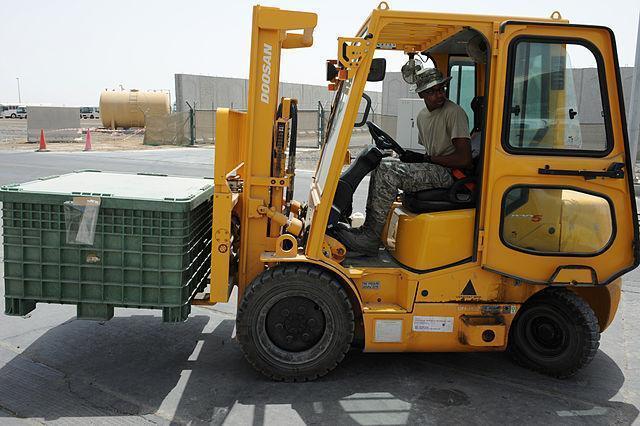Operating a forklift requires a certain level of maturity, skill, and responsibility. In line with the Fair Labor Standards Act, it is essential that forklift operators be at least 18 years old to ensure the safety of the workplace and the individuals involved. Employers have a duty to adhere to these forklift age requirements and to provide appropriate training and certification to their operators. In this guide, we’ll delve deeper into the age requirements and safety measures that must be in place for forklift operation.
Forklift Age Requirements: The Importance of Compliance
The Fair Labor Standards Act (FLSA) explicitly states that individuals under 18 years of age are not allowed to operate forklifts in non-agricultural employment, as outlined in 29 CFR 570.58 (Order 7). Paragraph (a)(1). This regulation is in place to protect young workers from the hazards associated with operating heavy machinery, which demands a higher level of skill and responsibility than they may be equipped to handle.
The prohibition of individuals under 18 years old from operating forklifts in non-agricultural employment is a crucial safety measure, as outlined in the Fair Labor Standards Act (FLSA) and 29 CFR 570.58 (Order 7). The rationale behind this age requirement is that operating a forklift demands a high level of maturity, skill, and responsibility, which younger individuals may not yet possess. Ensuring that forklift operators meet the age requirement helps reduce the likelihood of accidents and injuries in the workplace, as older individuals are typically more experienced and better equipped to handle the complexities of operating heavy machinery.
In 2002, the Employment Standards Administration’s Wage and Hour Division introduced the “STOP” sticker initiative. This program aimed to increase awareness about the restrictions on forklift operation by workers under 18 years of age. As a part of this campaign, the WHD created a sticker that could be affixed to forklifts, serving as a clear and visible reminder about the age restriction. The goal was to reinforce the importance of adhering to safety regulations and ensuring that forklift operators are of the legally required age, thereby reducing the risk of accidents and injuries in the workplace.
Employer Responsibilities: Ensuring Competent Operators and a Safe Workplace
Moreover, employers have a responsibility to provide proper training and certification for their forklift operators, in addition to adhering to the age requirement. Comprehensive OSHA-compliant safety training programs, such as those offered by OnlineSafetyTrainer.com, cover essential aspects of forklift operation, including safe driving practices, proper load handling, and equipment maintenance. By adhering to the age requirements and providing comprehensive training for forklift operators, employers contribute to a safer and more productive workplace. It is crucial for employers, educators, parents, and young workers to stay informed about these restrictions and collaborate to create and maintain safe and healthful work environments. This collective effort ensures compliance with OSHA standards and promotes a culture of safety in the workplace.
In addition to age and training requirements, employers must abide by the regulations outlined in 29 CFR 1910.178. This standard mandates the safe operation of powered industrial trucks at their facilities. Employers must consistently enforce these rules and monitor their workers to ensure that they are operating forklifts safely and effectively.
Employers should also be aware of other employment activities that are prohibited for workers under 18 years old under the Fair Labor Standards Act. It is crucial for employers, educators, parents, and young workers to stay informed about these restrictions and to work together to create and maintain safe and healthful work environments.
In Conclusion
The age requirements for forklift operation are in place to protect young workers and ensure a safe and productive workplace for all. By adhering to these regulations and providing comprehensive training and certification for forklift operators, employers can maintain compliance with OSHA standards and promote a culture of safety in their facilities. Remember that fostering a safe and compliant work environment is a collective effort, and every stakeholder has a role to play in achieving this goal.
References:
- 29 CFR 570.58, Occupations involved in the operation of power-driven hoisting apparatus (Order 7). Paragraph (a)(1), effectively prohibits employees under 18 years of age from operating forklifts in non-agricultural employment.
- https://commons.wikimedia.org/wiki/File:Doosan_forklift_in_June_2012.jpg
- https://www.osha.gov/laws-regs/regulations/standardnumber/1910/1910.178
- https://www.osha.gov/sites/default/files/publications/shib093003.pdf










